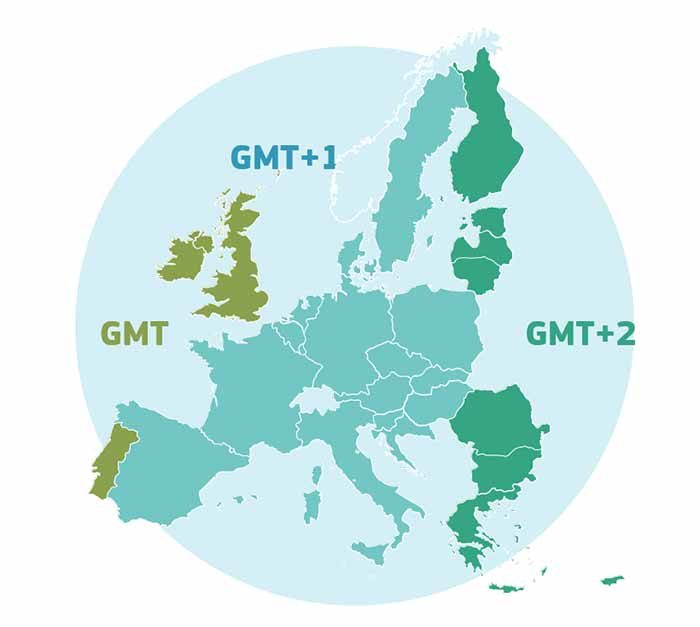Time Change in Europe on Sunday 31 March 2019 maybe for last time! The Commission presented a proposal to end seasonal time changes in 2019 throughout the EU, while leaving Member States the freedom to decide their standard time.
The European Commission has carried out a public consultation, which generated around 4.6 million replies, of which 84% were in favour of discontinuing the bi-annual clock changes while 16% wanted to keep them. The Commission has analysed the Time change, which points to the importance of having harmonised rules in this area to ensure a proper functioning of the internal market.
When Do Clocks Change in Europe?
Clocks in most European countries are turned back by 1 hour on October 28, 2018 at 01:00 UTC. Since Europe spans several time zones, the switch occurs at different local times (see table below). The US ends DST on November 4, 2018, always a week after Europe.
Daylight Saving Time
Europe Time Zones and Coordinated Universal Time (UTC)
- Central European Time (CET)
- Western European Time (WET)
- Eastern European Time (EET)
Most European countries synchronize their clock changes. According to the current EU rules, DST starts on the last Sunday of March and ends on the last Sunday of October.
European countries introduced summertime arrangements in the last century to save energy, particularly in times of war or during the oil crisis of the 1970s. Starting in 1980, the EU gradually adopted legislation putting an end to the diverging schedules of the national clock changes.

Seasonal clock change in the EU
Currently there are three standard time zones in the EU: Western European Time (Ireland, Portugal, UK), Central European Time (17 Member States) and Eastern European Time (Bulgaria, Cyprus, Estonia, Finland, Greece, Latvia, Lithuania and Romania).
EU Might End DST Permanently
Next year may be the last time Europeans set their clocks forward 1 hour, as the EU considers scrapping DST permanently in 2019. The European Commission, the executive arm of the European Union (EU), has recently pushed to end the yearly clock changes in Europe.
If the initiative is successful, the last EU-wide Daylight Saving Time – DST period will start on Sunday 31 March 2019. Each member state would then have the chance to decide if they stay on “summer time” (DST) year-round or change their clocks once more on Sunday 27 October 2019 to observe permanent standard time in subsequent years. In that case, the upcoming time change would be the last joint switch from DST to standard time in Europe.
Get Ready!
EU Debates!
Your opinion counts!














